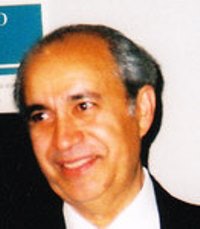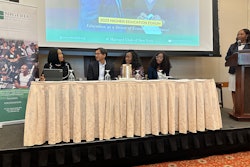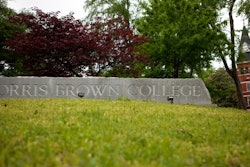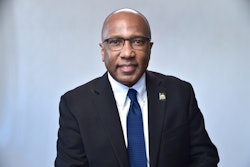 Dr. Ardeshir Lohrasbi
Dr. Ardeshir LohrasbiAn Iran-born retired business professor waited too long to sue the University of Illinois at Springfield for purported racial and national origin discrimination, according to U.S. District Judge Sue Myerscough of Springfield.
As a result, she dismissed the suit filed by Dr. Ardeshir Lohrasbi, who claims the university wrongly barred him from campus before his scheduled retirement took effect and denied him a promised emeritus designation.
Lohrasbi, who is a U.S. citizen, joined the faculty in 1980 and earned tenure in 1986, the decision said.
In mid-2011, when he was an associate professor of business administration, Lohrasbi negotiated a resignation agreement that was to take effect at the end of the calendar year. That summer, however, he told the dean he would like to delay its effect for financial reasons but the university declined to let him do so.
During his final term, Lohrasbi made a comment about “maybe a machine gun” to a staff member, who reported it to university authorities, the decision said. Campus police investigated the incident and issued a “notice of trespass” to Lohrasbi as a possible danger to the university, barring him from campus without a police escort for one year.
The university placed Lohrasbi on administrative leave and prohibited him from teaching his classes or contacting students for the rest of the term, the decision said. The university also did not initiate the process that would give him emeritus status, allowing him to continue teaching and keep an office.
He sued under Title VII, alleging discrimination based on his Iranian heritage. The suit also asserted that “he was labeled a terrorist because of the machine gun comment and that a White professor who had made the same comment would not have been subject to the same response,” the decision said.
But Meyerscough ruled that Lohrasbi missed the deadline to sue because he hadn’t filed his EEOC charge within 300 days of the university’s alleged discriminatory actions. She rejected his argument that the university had committed a “continuing violation” that stops the clock because it still denies him the benefits of emeritus status.
Suit going forward
A federal judge in Los Angeles has allowed two former members of the Pepperdine University women’s basketball team to pursue Title IX sexual harassment and sexual orientation claims based on their same-sex relationship.
U.S. District Judge Dean Pregerson rejected an effort by Pepperdine to dismiss three claims by Haley Videckis and Layana White, who accused the university of discrimination and retaliation.
Both were transferred from Arizona State University, the decision said.
Among the allegations were that the team’s head coach and staff “were concerned about the possibility of the relationship causing turmoil within the team” and “harassed and discriminated against them in an effort to force them to quit the team.”
The suit lays out a series of alleged incidents of improper questioning and harassment about their sexual orientation and personal lives, attempts by the staff to alienate other team members against them, misuse of their medical records, manipulation of team rules regarding GPAs, false accusations of cheating and failure to fulfill a commitment to White that Pepperdine would seek NCAA approval to play basketball during her first season as a transfer student.
It also asserts that the head coach made statements at meetings such as “lesbianism will not be tolerated,” that they weren’t cleared to play because of the university’s discriminatory views about lesbianism and that the athletic director failed to properly follow up on complaints.
In allowing the Title IX claims to go forward, Pregerson said that “sexual orientation discrimination is a form of sex or gender discrimination, and that the actual orientation of the victim is irrelevant. Simply put, to allege discrimination on the basis of sexuality is to state a Title IX claim.”
He also said that the kind of sexual orientation discrimination alleged in the suit falls under the broader umbrella of gender stereotype discrimination.
“If the women’s basketball staff in this case had a negative view of lesbians based on lesbians’ perceived failure to conform to the staff’s views of acceptable female behavior, actions taken on the basis of these negative biases would constitute gender stereotype discrimination,” he said.
The decision also said the complaint has advanced a valid sex discrimination claim in that, if the women “had been males dating females, instead of females dating females, they would not have been subjected to the alleged different treatment.”
In addition, Pregerson found sufficient evidence of retaliation following their complaints to the coaching staff and Pepperdine’s Title IX coordinator in that they were forced off the team and lost their scholarships.
The decision did not address other claims in the suit for emotional distress, violation of the right to privacy and violation of the California Educational Code.





















